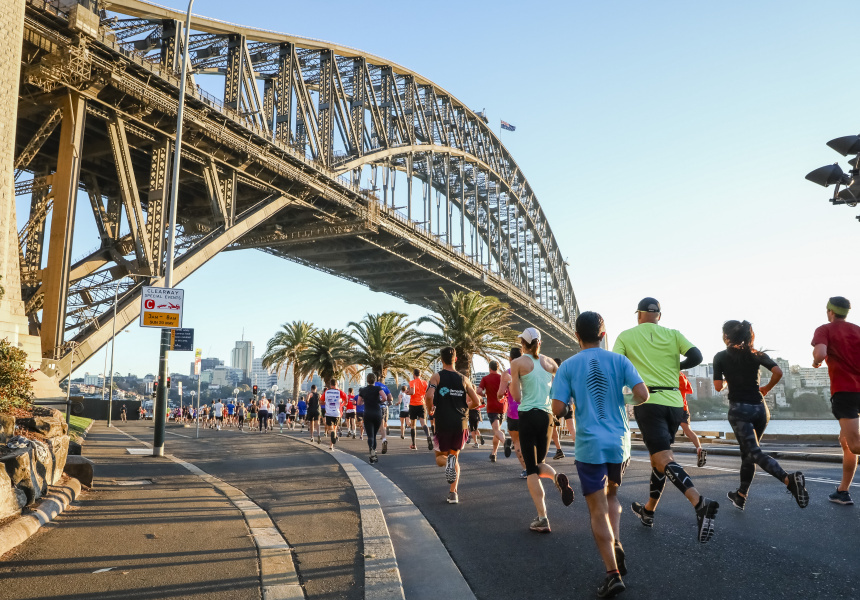Kenyans Stellah Barsosio and Felix Kiprotich delivered the goods, slashing significant chunks off the previous best performances at the Sydney Marathon, Australia, an IAAF Gold Label road race, on Sunday.
Barsosio, the 26-year-old from Iten, was the first woman to reach the finish on the forecourt of the Sydney Opera House in 2:24:33.
That was some four-and-a-half minutes faster than the previous race record set by Makda Harun Haji (Ethiopian-born Australian) two years ago.
More than that, Barsosio’s was the fastest time run in Australia since the Sydney Olympic Games and now sits as third-fastest ever behind the gold medallist then, Naoko Takahashi (JPN), 2:23:14, and silver medallist Lidia Simon (ROM), 2:23:22.
Fittingly, the Sydney marathon is a legacy event from the Olympic Games. Its early editions were run over the Olympic course.
Kiprotich, for his part, produced the first sub-2:10 in the Sydney race – 2:09:49.
This was 89 seconds faster than the previous race record, 2:11:18 by Ethiopia’s Gebo Gameda Burka.
Even in a strong line-up, Barsosio stood out as the one to beat in the women’s field. She had the fastest entry time – 2:23:36 in Rotterdam this year – and her four most recent marathons had produced times of 2:23:43 (fifth in Paris), 2:25:00 (ninth in Frankfurt), 2:33:23 (second in Singapore) and then her PB for second in Rotterdam.
The race had a steady pace of about 72 minutes for the first half. Barsosio was content to sit with a lead pack of five women in which the most aggressive was her Kenyan compatriot Bornes Kitur (third in Osaka this year).
Bahrain’s Tejitu Daba and a third Kenyan, Josephine Chepkoech, were also in the lead group.
Into the second half of the race, however, it was all Barsosio. Sticking with the pacemaker, she steadily built her lead to more than two minutes at the finish.
Her only difficulties were with her drinks bottle late in the race – she quickly doubled back to get it – and some hesitation on corners as the course wound its way around the Sydney harbour-front in the closing stages.
These turned out to be insignificant, however, and Barsosio’s 2:24:33 saw her well clear of Chepkoech (2:26:43) and Daba (2:28:22).
The men’s race followed a similar pattern as Australian Ben St Lawrence and then 2:08 performer Kenya’s Joseph Aperumoi led through the first 25 kilometres.
St Lawrence went to almost halfway at which point the group was on course to go just under the record set by Ethiopian Gameda Burka in 2014.
By the time Aperumoi’s work was done at 25km, there were just five in the leading group – Kiprotich, Kenyan Michael Kunyuga, defending champion Elijah Kemboi (Kenya), Silas Too (Kenya) and the only non-Kenyan, Saturo Sasaki of Japan.
Kiprotich, who has run 2:05:33 this year, made his decisive move at 29km. His surge took him clear as he ran the next five kilometres, which drops down to the waterfront, in the fastest split of the race, 14:55.
The 15 seconds gained there was almost precisely his ultimate winning margin.
At 35km, the lead was 23 seconds to Kunyuga with Sasaki another 17 seconds back, well clear of Kemboi and Too.
Kunyuga kept chasing, despite being clearly hindered by uncertainty on some of the turns in the closing stages, but was never charging at the leader.
As the race drew to a close Kiprotich did not falter. Despite showing more obvious signs of the strain, he maintained form through to the line to win in 2:09:49.
Both Kunyuga and Sasaki were also under the old record.
Both winners added record bonuses equal to first-place prize-money to double their earnings on the day.
In partnership with ANA and Sports Leo

You must be logged in to post a comment Login